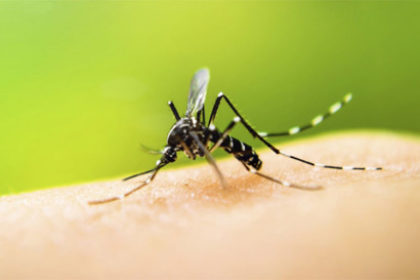
Event information
The Zika virus has been spreading rapidly throughout Latin America, with numerous implications for global public health regionally and across borders. In response, the UC Berkeley Center for Global Public Health (SPH), Henry Wheeler Center for Emerging & Neglected Disease, and Center for Latin American Studies are organizing an expert panel of some of the country’s leading infectious disease and epidemiology experts from the UC Berkeley School of Public Health.
The panel will outline what we know about the Zika virus, what we can expect as infections increase globally, and how we should be addressing the Zika virus both at home and abroad. Through moderated discussion, topics that will be discussed include: vaccine development, epidemiological response/surveillance, pesticide and environmental risk, and social impacts such as the implications for women’s health, slum and urban health, abortion policy, and human rights.
Panelists are well-qualified to discuss the global health implications of Zika. Professor Art Reingold has worked for over thirty years leading the prevention and control of infectious diseases both at the national level, including eight years at the US Centers for Disease Control and Prevention, as well as with numerous developing countries around the world. He has sat on various national vaccines committees and on the World Health Organization (WHO) Strategic Advisory Group of Experts (SAGE) on Immunization. Professor Eva Harris has developed a multidisciplinary approach to study the molecular virology, pathogenesis, immunology, epidemiology, clinical aspects, and control of dengue–focusing on the Latin American region. Dengue is the most prevalent mosquito-borne viral disease in humans. The Harris Lab and her non-profit, the Sustainable Sciences Institute, are working very actively on Zika though sites in Nicaragua and also Ecuador on diagnosis, surveillance, investigation, and public health response in-country. Professor Lee Riley focuses his infectious disease research in Brazil, and is one of the nation’s preeminent scholars on public health amongst populations living in slums.
From a global public health perspective, the impact of Zika spreads further than in the epidemiology of the virus–there are implications for health service provision, health and human rights, health policy, and the environment as well. Panelists Dr. Caitlin Gerdts will speak to issues regarding abortion policy in the region, and implications of Zika in countries where abortions are currently illegal (including Brazil). Professor Brenda Eskanzi, who has been Chair of the UCB Maternal and Child Health program and is expert on reproductive and perinatal epidemiology, will be discussing pesticide and environmental risks to populations.
Other panelists may be added to the program and will be announced on this website as information is updated.
Event details
Date: Thursday, March 3, 2016
Time: 6:15-7:45pm (PST)
Location: Sutardja Dai Hall (Banatao Auditorium), UC Berkeley campus
RSVP: http://ucb-zika-panel.eventbrite.com
Confirmed panelists
Dr. Art Reingold, MD – Professor and Head of Epidemiology, UC Berkeley School of Public Health (SPH)
Dr. Eva Harris, PhD – Professor, Division of Infectious Diseases and Vaccinology; Faculty Director, Center for Global Public Health, UC Berkeley SPH
Dr. Lee Riley, MD – Professor of Epidemiology and Infectious Diseases; Chair, Division of Infectious Diseases and Vaccinology, UC Berkeley SPH
Dr. Caitlin Gerdts, PhD, MHS – Senior Associate, Ibis Reproductive Health
Dr. Brenda Eskanazi, PhD – Professor of Epidemiology; Center for Occupational and Environmental Health, UC Berkeley SPH
Other panelists TBA
Organized and sponsored by:
UC Berkeley Center for Global Public Health (SPH)
Henry Wheeler Center for Emerging and Neglected Diseases
UC Berkeley Center for Latin American Studies
Media contacts: Dr. Hildy Fong at cgph@berkeley.edu; Dr. Michael Eichberg at cend@berkeley.edu
